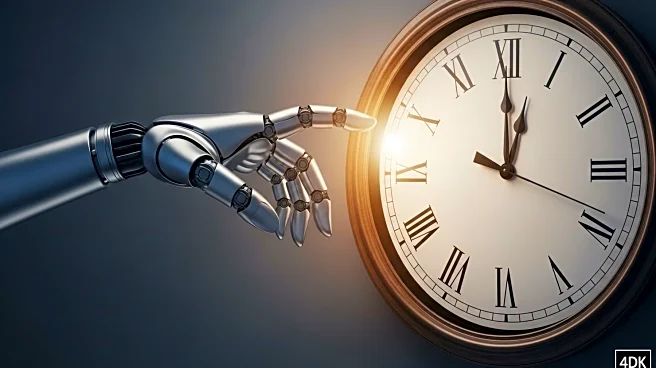What is the story about?
What's Happening?
David Zervos from Jefferies has raised concerns about the impact of artificial intelligence on the labor market, suggesting that the Federal Reserve may be underestimating the issue. Zervos, a potential candidate to replace Fed Chair Jerome Powell, highlighted the dilemma faced by the Fed in balancing economic growth with rising unemployment due to AI advancements. He noted that while AI could drive economic growth, it might also lead to significant job losses, with estimates suggesting a loss of three to five million jobs in the next few years.
Why It's Important?
The rapid growth of AI technology presents a dual challenge for the U.S. economy: fostering innovation and managing its impact on employment. As AI continues to evolve, industries may experience increased efficiency but also face workforce reductions. This situation could lead to economic disparities and necessitate policy adjustments to support affected workers. The Federal Reserve's focus on employment stability alongside price control will be critical in navigating these changes.
What's Next?
The Federal Reserve may need to reassess its priorities, potentially shifting focus from inflation to employment stability. Policymakers and industry leaders will likely engage in discussions on how to mitigate job losses while capitalizing on AI-driven growth. Strategies may include retraining programs and incentives for sectors likely to be impacted by AI.
Beyond the Headlines
The AI-driven transformation of the labor market raises ethical and social questions about the future of work. It challenges traditional employment models and necessitates a reevaluation of workforce development strategies to ensure equitable growth and opportunity.
















